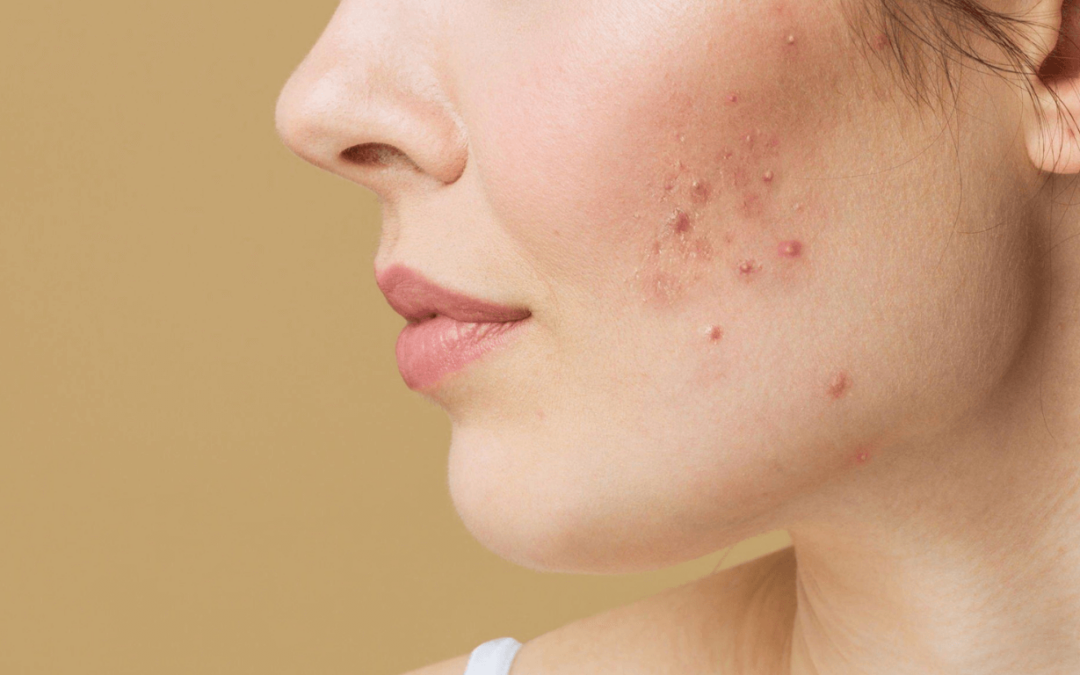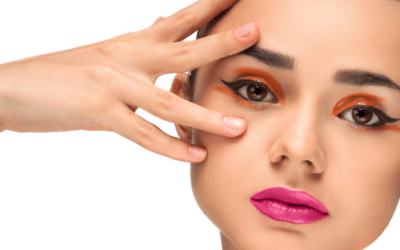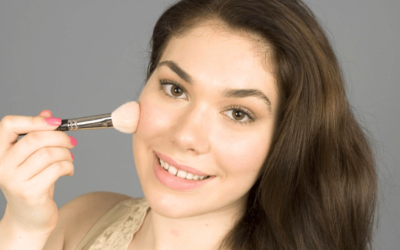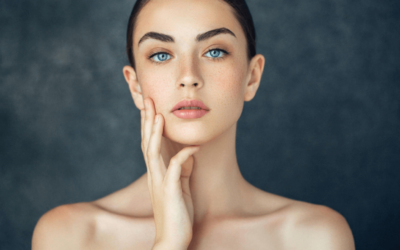In the realm of beauty, where confidence and creativity intertwine, one question often echoes in the minds of makeup enthusiasts: Can makeup cause acne? As we navigate the world of cosmetics, this query stands as a sentinel at the intersection of allure and apprehension.
On an investigative journey as we delve into the intricacies of makeup, its potential impact on skin health, and the strategies to maintain a harmonious balance between beauty and blemishes.
Cosmetics and Complexions: The Landscape of Makeup
Before delving into the acne equation, let’s paint a vivid canvas of what makeup entails. Makeup is a tapestry of colors and textures that empowers individuals to express themselves, enhance their features, and embrace their unique style.
From foundations that create flawless canvases to eyeliners that define eyes with precision, the world of makeup is an embodiment of artistry and personal flair.
However, as with any artistic endeavor, understanding the nuances and potential consequences is crucial. In the case of makeup, concerns about its association with acne have sparked numerous discussions and inquiries.
The Acne Enigma: Fact or Fiction?
The question of whether makeup can cause acne isn’t a straightforward matter of fact or fiction. Rather, it’s an exploration of variables and possibilities.
Acne, a skin condition characterized by clogged pores, inflammation, and blemishes, can have multifaceted origins, ranging from genetics and hormones to diet and skincare habits.
Makeup, when thoughtfully selected and applied, might not be a direct cause of acne.
However, the devil often resides in the details, and the way you choose, use, and remove your makeup can influence your skin’s health.
Ingredients and Impact: A Close Examination
One of the primary culprits that can tip the balance towards breakouts is comedogenic ingredients. These are substances that have a higher likelihood of clogging pores and causing acne.
When selecting makeup products, scrutinizing their ingredient lists becomes paramount. Ingredients like certain oils, waxes, and heavy pigments can contribute to pore congestion and potential acne flare-ups.
Opting for non-comedogenic or oil-free formulations can reduce the risk of exacerbating acne-prone skin.
These formulations are designed to minimize pore-clogging tendencies, allowing your skin to breathe even while wearing makeup.
The Role of Application Techniques
Just as a painter wields brushes with intention, the way you apply makeup can impact your skin’s well-being. Using dirty brushes, sponges, or fingers can introduce bacteria to your skin, potentially aggravating acne-prone areas.
Regularly cleaning your tools and adopting hygienic practices can safeguard your skin from unnecessary irritation.
Furthermore, applying makeup with a heavy hand can lead to unnecessary friction, potentially exacerbating existing blemishes or creating new ones.
A gentle touch and the use of light, breathable layers can help maintain the health of your skin’s barrier.
The Importance of Removal Rituals
As the sun sets on your day, the removal of makeup takes center stage. Leaving makeup on overnight can trap oils, dirt, and environmental pollutants against your skin, contributing to clogged pores and potential breakouts.
Choosing effective yet gentle makeup removers and cleansing methods is essential.
Double cleansing, a technique that involves using an oil-based cleanser followed by a water-based cleanser, can ensure thorough removal without compromising your skin’s balance.
This ritual not only aids in removing makeup but also clears away impurities that can accumulate throughout the day.
Makeup as a Confidence Boost
It’s essential to recognize that makeup isn’t inherently a foe of acne-prone skin.
In fact, makeup can serve as a powerful tool to boost confidence, enhance self-esteem, and offer a sense of normalcy for those navigating skin challenges.
Many individuals use makeup to feel empowered and in control of their appearance, especially when dealing with acne-related concerns.
Striking a Balance: Makeup and Acne Management
The question of whether makeup can cause acne hinges on understanding the intricate dance between cosmetics and skin health. To strike a harmonious balance, consider the following tips:
Choose Wisely: Opt for makeup products labeled as non-comedogenic or oil-free to minimize pore-clogging risks.
Prioritize Hygiene: Regularly clean your makeup brushes, sponges, and tools to prevent the accumulation of bacteria.
Mindful Application: Apply makeup with a gentle touch and avoid excessive rubbing, which can irritate the skin.
Thorough Removal: Make makeup removal an integral part of your skincare routine, ensuring your skin is free from impurities.
Consult Professionals: If you’re unsure about which makeup products to use, consider seeking advice from dermatologists or skincare experts.
A Tapestry of Individuality
In the tapestry of life, each thread is an essential component of the whole. Similarly, in the realm of makeup and acne, individual factors play a significant role.
While makeup might not be the sole cause of acne, understanding its potential impact and adopting mindful practices can contribute to your skin’s well-being.
Ultimately, the relationship between makeup and acne is a dynamic and nuanced one.
By making informed choices, nurturing your skin with care, and embracing your unique beauty journey, you can confidently navigate the captivating world of makeup while tending to the canvas of your complexion.
















